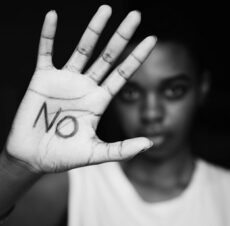
Domestic violence QLD: domestic violence is a critical issue that affects countless lives across the world, and Queensland, Australia, is no exception. It refers to a pattern of abusive behavior in an intimate relationship that can manifest in various forms, such as physical violence, emotional abuse, financial control, and more. It is a deeply concerning problem that transcends age, gender, and socioeconomic boundaries.
 Discussing domestic violence in Qld is of paramount importance due to the alarming prevalence of this issue in the region. Queensland, like many other parts of the world, grapples with the devastating consequences of domestic violence on individuals, families, and communities. By addressing this issue head-on, we can work towards raising awareness, providing support, and ultimately eradicating this pervasive problem.
Discussing domestic violence in Qld is of paramount importance due to the alarming prevalence of this issue in the region. Queensland, like many other parts of the world, grapples with the devastating consequences of domestic violence on individuals, families, and communities. By addressing this issue head-on, we can work towards raising awareness, providing support, and ultimately eradicating this pervasive problem.
Moreover, shedding light on domestic violence in Queensland is essential because it affects not only the victims but society as a whole. The economic, social, and emotional costs of domestic violence are significant, and by understanding the problem better, we can take collective action to prevent it.
The purpose of this blog post is to provide a comprehensive understanding of domestic violence in Queensland. We will delve into its definition, signs, statistics, legal aspects, available support services, and prevention efforts. By offering this information, we aim to equip our readers with the knowledge and resources needed to recognise, address, and combat domestic violence in their communities. Furthermore, by sharing personal stories and testimonials, we hope to inspire empathy, encourage survivors to seek help, and foster a sense of solidarity among our readers.
In the end, our ultimate goal is to contribute to the ongoing conversation surrounding domestic violence in Queensland and, in doing so, work towards a safer and more compassionate future for all.
In Queensland, domestic violence is legally defined as a pattern of abusive behavior in an intimate or familial relationship. It encompasses physical, emotional, psychological, economic, and even technological abuse. Queensland’s legislation acknowledges that domestic violence extends beyond physical harm, recognising that emotional and psychological abuse can be equally damaging.
The legal framework in Queensland is comprehensive in identifying behaviors that constitute domestic violence. These behaviors can include:
The impact of domestic violence on victims is profound and far-reaching. It goes beyond physical scars and often leads to long-term emotional and psychological trauma. Victims may experience anxiety, depression, low self-esteem, and post-traumatic stress disorder. It can disrupt their ability to trust others, maintain healthy relationships, or even carry out daily activities.
Children in households with domestic violence are particularly vulnerable. Witnessing such abuse can have a lasting impact on their emotional and psychological well-being, potentially perpetuating the cycle of violence into the next generation.
Understanding these definitions and the diverse manifestations of domestic violence is crucial. It enables us to recognise when it occurs, provide support to survivors, and take action to prevent it. By addressing domestic violence comprehensively, Queensland can work toward a safer and more nurturing environment for all its residents.
Physical signs of domestic violence are often the most visible indicators of abuse. These may include unexplained injuries such as bruises, cuts, or broken bones. Victims might make frequent visits to healthcare providers with injuries that they struggle to explain or that seem inconsistent with their explanations. It’s important to note that not all victims display physical signs, as abusers may use other forms of abuse to control and intimidate.
Emotional and psychological signs of domestic violence can be less obvious but equally damaging. Victims may exhibit symptoms such as anxiety, depression, low self-esteem, and fearfulness. They may withdraw from social activities or isolate themselves from friends and family. An abuser often employs manipulation, humiliation, and intimidation tactics, leaving the victim feeling emotionally powerless.
Economic abuse is a form of domestic violence that involves controlling a victim’s financial resources. Signs of economic abuse may include the victim having limited access to money, being coerced into giving up financial control, or having their spending monitored and controlled by the abuser. This can result in economic dependence, making it challenging for the victim to leave the abusive relationship.
Social signs may include a victim becoming increasingly isolated from their support network. An abuser may intentionally sabotage relationships with friends and family, making the victim feel alone and without recourse.
In today’s digital age, technology-based abuse has become a prevalent form of domestic violence. It includes tactics like cyberbullying, harassment through text messages or social media, and even GPS tracking or surveillance using mobile apps. Victims may experience invasion of privacy, threats, or humiliation through technology, often with the intention of further controlling and isolating them.
 Recognising these signs is crucial to providing support and assistance to victims of domestic violence in Queensland. Understanding that abuse goes beyond physical harm is a crucial step in addressing this pervasive issue and creating a safer environment for all residents. If you or someone you know is experiencing domestic violence, it’s important to seek help from local support services and authorities.
Recognising these signs is crucial to providing support and assistance to victims of domestic violence in Queensland. Understanding that abuse goes beyond physical harm is a crucial step in addressing this pervasive issue and creating a safer environment for all residents. If you or someone you know is experiencing domestic violence, it’s important to seek help from local support services and authorities.
Domestic violence is a deeply concerning issue that has left a significant impact on the lives of many in Queensland. According to recent statistics, approximately one in three Australian women and one in five Australian men have experienced some form of intimate partner violence, and Queensland is no exception to this alarming trend.
The prevalence of domestic violence in Queensland highlights the urgent need for awareness, education, and intervention to address this pervasive issue. It affects individuals from all walks of life, regardless of age, gender, or socioeconomic background.
Understanding the demographics and risk factors associated with domestic violence is crucial in developing effective prevention and intervention strategies. Research indicates that certain factors may increase the likelihood of experiencing domestic violence, including:
Recognising these risk factors can help target resources and support towards vulnerable populations and develop tailored prevention programs.
Despite the prevalence of domestic violence, underreporting remains a significant challenge. Many victims hesitate to come forward due to fear, shame, or concerns about their safety. However, encouragingly, reporting and help-seeking have been on the rise in recent years, thanks to increased awareness campaigns and improved support services.
It’s essential to continue promoting a culture of reporting and support, ensuring that victims are aware of available resources and feel empowered to seek help. By understanding the statistics and trends related to reporting and help-seeking, Queensland can further develop its support systems to better serve those in need and work towards a safer future for all residents.
Queensland has a robust legal framework in place to address domestic violence. The Domestic and Family Violence Protection Act 2012 provides a comprehensive definition of domestic violence and outlines the various forms of protection available to victims. It recognises that domestic violence extends beyond physical harm and includes emotional, psychological, and economic abuse.
This legislation empowers victims by allowing them to seek protection orders, ensuring their safety and prohibiting the abuser from engaging in further abusive behavior. It also highlights the government’s commitment to eradicating domestic violence and offers a legal basis for intervention.
Obtaining a protection order in Queensland is a crucial step for victims seeking safety and legal recourse. To secure a protection order, victims can follow these steps:
The police play a crucial role in responding to domestic violence incidents, ensuring the safety of victims, and facilitating the legal process. They can issue temporary protection orders and provide immediate assistance.
The courts, on the other hand, have the authority to grant and enforce protection orders. They carefully consider the circumstances of each case, prioritise the safety of victims, and provide legal remedies to prevent further abuse.
Understanding the legal framework and protection order process is essential for both victims and advocates. It empowers victims to take action against their abusers, seek legal protection, and ultimately break free from the cycle of violence. Additionally, it reinforces the commitment of Queensland’s legal system to combat domestic violence and protect the rights and safety of all residents.
Queensland is fortunate to have a wide range of government and non-government organisations dedicated to providing support to victims of domestic violence. These organisations work tirelessly to ensure that survivors receive the assistance they need to escape abusive situations and rebuild their lives.
Government agencies like the Queensland Government’s Department of Child Safety, Youth and Women and the Queensland Police Service offer essential services and resources. They provide information, legal assistance, and guidance to victims.
Non-government organisations such as DVConnect, Domestic Violence Action Centre, and White Ribbon Australia are also invaluable resources. They offer a myriad of services, including crisis intervention, legal advice, counseling, and educational programs aimed at raising awareness and preventing domestic violence.
Crisis helplines play a vital role in providing immediate assistance to victims of domestic violence in Queensland. These helplines are staffed by trained professionals who can offer support, guidance, and information 24/7. DVConnect’s 1800RESPECT helpline, for example, provides confidential assistance and can connect victims to various support services.
Support networks within communities are also essential. Friends, family members, and coworkers can offer emotional support and encouragement to victims. Building a strong support network is crucial for individuals seeking to break free from an abusive relationship.
Safe accommodation and counseling services are critical for victims who need a safe place to escape abuse and begin the healing process. Queensland has numerous shelters and refuges that provide temporary housing and support for individuals and families fleeing domestic violence.
 Additionally, counseling services, often offered by organisations like Relationships Australia Queensland, offer survivors the opportunity to work through the emotional and psychological trauma of abuse. These services can be instrumental in helping victims rebuild their self-esteem and move forward with their lives.
Additionally, counseling services, often offered by organisations like Relationships Australia Queensland, offer survivors the opportunity to work through the emotional and psychological trauma of abuse. These services can be instrumental in helping victims rebuild their self-esteem and move forward with their lives.
In Queensland, there is a robust network of support services and resources available to victims of domestic violence. These organizations and helplines are dedicated to empowering survivors, raising awareness, and ultimately eradicating domestic violence from our communities. If you or someone you know is in need of help, do not hesitate to reach out to these valuable resources.
Early intervention and prevention programs are crucial in the fight against domestic violence Qld. By addressing the issue at its roots, we can reduce the incidence of abuse and create safer communities. Prevention begins with education, awareness, and proactive efforts to change social norms that perpetuate violence.
Early intervention programs target individuals at risk of becoming either victims or perpetrators of domestic violence. These programs provide resources, support, and education to help individuals recognise and break the cycle of abuse before it escalates. They focus on empowering individuals with the knowledge and skills needed to maintain healthy, respectful relationships.
Educational initiatives play a pivotal role in raising awareness about domestic violence. Queensland has made significant strides in educating the public, schools, workplaces, and communities about the issue. Educational programs help dispel myths surrounding domestic violence and promote a culture of respect and equality.
School-based programs, community workshops, and workplace training sessions are all essential components of these initiatives. They teach individuals to recognise the signs of abuse, provide resources for victims, and encourage bystander intervention. By imparting knowledge and fostering empathy, educational initiatives contribute to creating a society where domestic violence is less tolerated.
Communities in Queensland have a critical role to play in preventing domestic violence. Bystander intervention is a powerful tool, as it encourages individuals to step in when they witness abusive behavior or suspect someone may be in danger. Encouraging community members to speak up, support victims, and report abuse can make a significant impact in preventing further harm.
Community involvement also includes supporting local domestic violence shelters, organisations, and helplines. By volunteering, donating, or simply being aware of the available resources, individuals can contribute to the support network for victims and survivors.
In Queensland, the combined efforts of early intervention, educational initiatives, and community involvement are vital components of the broader strategy to prevent domestic violence. By working together, we can create a society where domestic violence is not just discouraged but actively prevented, fostering a safer and more respectful environment for everyone.
The stories of survivors of domestic violence in Queensland are not only powerful but also essential in raising awareness about this pervasive issue. By sharing real-life experiences, survivors shed light on the harsh realities they have faced and the courage it takes to break free from abusive relationships.
Survivors’ stories help break the silence that often shrouds domestic violence. When victims see others who have walked a similar path and emerged stronger, it can provide hope and inspiration to seek help and escape the cycle of abuse.
Survivors’ personal stories offer valuable insights into their journey towards recovery and healing. These accounts often include the challenges they encountered, the support systems they relied on, and the coping mechanisms they developed. This information can be invaluable for others who are on a similar journey or those trying to support survivors.
Recovery from domestic violence is not linear, and it can be a long and arduous process. By sharing their experiences, survivors help break down the stigma and misunderstanding surrounding the recovery journey. Their stories remind us that healing is possible and that every survivor’s path is unique.
Survivors of domestic violence demonstrate incredible resilience and strength in their journeys towards healing and rebuilding their lives. Their stories serve as a testament to the human spirit’s capacity to overcome adversity. Despite the trauma they have endured, survivors often emerge as advocates, using their experiences to drive change and support others.
These personal stories also challenge harmful stereotypes and victim-blaming attitudes. They emphasise that survivors are not weak or at fault for the abuse they suffered. Instead, they showcase survivors’ determination to break free and build a brighter future.
In sharing personal stories and testimonials, we honor the bravery of survivors, amplify their voices, and reinforce the importance of supporting those affected by domestic violence. Their stories remind us of the urgent need to continue working towards a Queensland—and a world—free from the scourge of domestic violence.
In this comprehensive exploration of domestic violence qld, we have covered a wide array of critical topics. We began by defining domestic violence under Queensland’s legal framework, highlighting its various forms and the profound impact it has on victims. We then delved into statistics, demographics, and reporting, emphasising the prevalence and urgency of addressing this issue. We explored the legal framework for protection orders and the roles of both police and courts in addressing domestic violence.
Moving forward, we examined the essential support services and resources available to victims, emphasising the importance of government and non-government organisations, crisis helplines, and safe accommodation. We then discussed the significance of prevention and education, stressing early intervention, educational initiatives, and community involvement as powerful tools in the fight against domestic violence.
If you or someone you know is experiencing domestic violence, please remember that help is available. Reach out to the support services mentioned in this blog post or confide in a trusted friend or family member. Your safety and well-being are paramount, and there is a community of caring individuals and organisations ready to provide assistance and support.
For survivors, your resilience and strength are commendable. You are not alone, and your experiences can inspire others on their own journeys to healing and recovery. Seek the support you need, whether through counseling, advocacy, or legal assistance, and remember that you deserve to live a life free from abuse.
As we conclude, we urge our readers to be part of the solution in combating domestic violence in Queensland. Awareness and education are powerful tools for change. Share this information, engage in conversations, and challenge harmful stereotypes and attitudes surrounding domestic violence. Support local organisations and initiatives working tirelessly to prevent abuse and assist survivors.
 Together, we can create a Queensland where domestic violence is not tolerated, where survivors find the support they need, and where our communities thrive in an atmosphere of respect, safety, and compassion. Let us stand united in the fight against domestic violence and work towards a brighter future for all Queensland residents.
Together, we can create a Queensland where domestic violence is not tolerated, where survivors find the support they need, and where our communities thrive in an atmosphere of respect, safety, and compassion. Let us stand united in the fight against domestic violence and work towards a brighter future for all Queensland residents.
In Queensland, domestic violence is legally defined as a pattern of abusive behavior within an intimate or familial relationship. It includes physical, emotional, psychological, economic, and technological abuse.
To obtain a protection order in Queensland, you can contact the police, who can issue a temporary protection order if immediate safety is a concern. Alternatively, you can apply to the Magistrates Court for a protection order, where a hearing will be scheduled to assess your case.
Queensland offers a range of support services, including crisis helplines like DVConnect and 1800RESPECT, safe accommodation in shelters and refuges, and counseling services provided by organisations like Relationships Australia Queensland.
You can contribute to prevention efforts by supporting educational initiatives, raising awareness, and engaging in community involvement. Be vigilant for signs of abuse and practice bystander intervention when necessary.
Additional information and resources can be found on the Queensland Government’s Domestic and Family Violence Portal, various non-government organisations’ websites, and through educational programs like White Ribbon Australia.